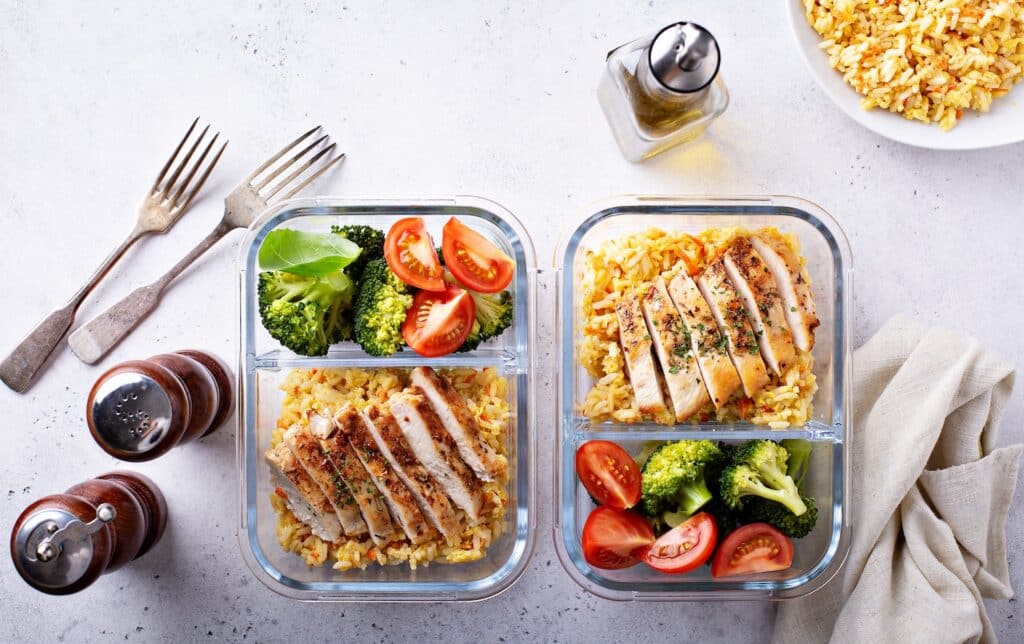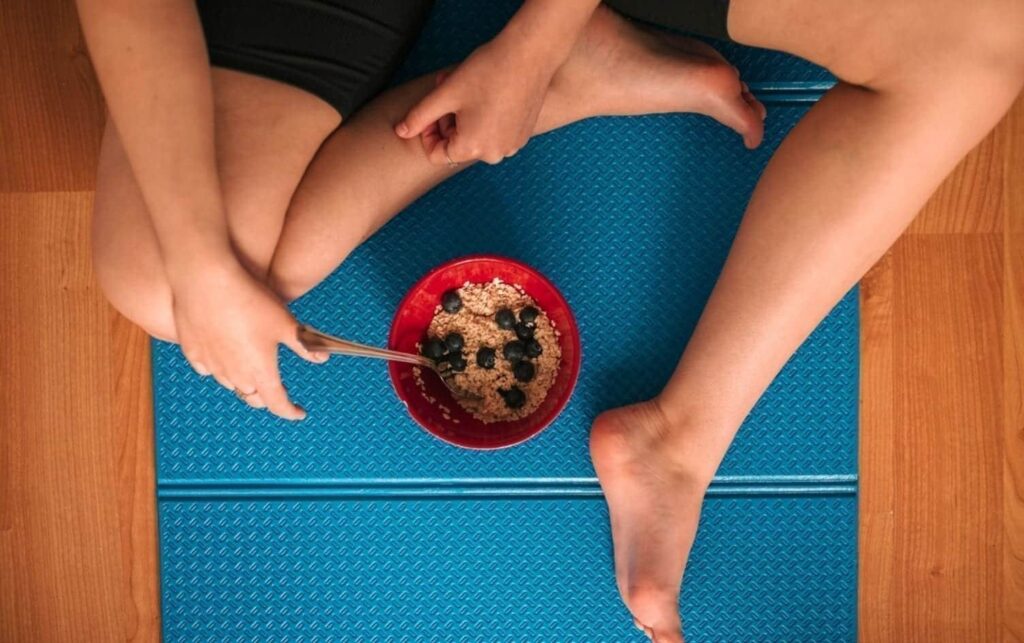If you want to lose weight, reduce body fat, improve blood sugar levels, and become stronger, you cannot ignore the importance of a balanced diet. However, what you eat isn’t the only part of the equation. Consideration of eating is very important timing Helps optimize weight loss during exercise.
Since there are no direct answers, it’s no surprise these frequently asked questions:
- Is eating before or after exercise effective for losing weight?
- Is it better to exercise before or after meals?
- Should I exercise before or after breakfast?
- Do I need to eat a meal or pre-workout snack before exercising?
- Should I eat before or after running to lose weight?
The choice that’s right for you depends on your health and exercise goals. Here’s what you need to know.
Do I need to eat before working out?
Eating before exercise isn’t necessarily right or wrong – it all depends on the individual. No two people’s bodies are exactly the same, and their needs to perform their best in the gym may vary based on their personal goals, overall health, and any medical conditions they have.
A better question might be whether you should consider exercising after a meal. A review of studies suggests that exercise performed within 30 minutes to two hours after eating has metabolic benefits that improve insulin sensitivity.
Effects of fasting exercise and eating exercise
Some research suggests that low-intensity exercise before meals may be a good choice if you’re trying to lose weight. This is because when you exercise in a fasted state, your body is more likely to use stored fat for fuel.
On the other hand, when you exercise right after a meal, your body uses the calories you just consumed as fuel. That said, eating protein before or after exercise can also help strengthen your muscles and give them the support they need to recover.
The point here is that exercising in a fasted state may result in more fat burning in some cases, but it may also result in lower quality exercise if you don’t eat enough to feel energized.
What to eat before exercise to lose weight
In order to lose weight, your body needs to maintain a calorie deficit. Your pre-workout meal should contain protein and carbohydrates to get the most out of your workout (except for people with certain health conditions, such as type 1 diabetes). To optimize your workout, don’t skip carbs, as they help replenish glycogen stores and keep you energized throughout your workout.
Note that you may want to avoid eating fiber-rich foods before exercising. Foods high in fiber may be harder to digest, which can make you feel uncomfortable, bloated, or bloated during exercise.

Should I eat after aerobic exercise?
Eating a meal rich in protein and some complex carbohydrates within a few hours of exercise can help restore glycogen stores and provide your muscles with much-needed protein so you can recover properly and be ready for the rest of the day Prepare.
Post-workout meals to help you achieve your goals
The best foods to eat after exercise are foods that contain protein and carbohydrates. Some suggestions include post-workout meals such as:
- Yogurt and fruit
- Fatty fish with healthy amino acids and carbohydrates (like brown rice)
- Turkey on whole wheat bread with vegetables
- Pretzels and a glass of low-fat chocolate milk
- Post-workout protein smoothies
The goal is to balance protein and carbohydrates to increase energy stores after physical activity, so don’t choose a snack that only contains one or the other. Eating protein after exercise is important to boost muscle protein synthesis and recover stronger, and protein bars are a great way to quickly refuel.
When to eat after exercise to help lose weight
When to eat after exercise depends on the type of exercise you do. For low-intensity exercise, you usually don’t have to eat after exercise, but stick to a regular, balanced diet. Low-intensity exercise includes jogging or walking for less than an hour.
For moderate to high-intensity workouts, you may want to drink a protein shake or eat a meal within 60 minutes of finishing. These workouts include high-intensity competitive sports, endurance training, and weightlifting, which require large amounts of energy. If you don’t eat, you may find it difficult to recover from exercise and cause muscle breakdown due to a lack of stored glycogen in the body. Additionally, if you wait longer than two hours for your next meal, you’re more likely to overeat, which can hurt your weight loss strategy.
Why does eating before or after exercise vary from person to person?
There are a variety of reasons why people choose to eat before exercising or wait until after. Some people may feel sluggish or nauseous if they eat before exercising. For example, if they drink a lot of water, they may feel the water sloshing around while running or jogging.
However, some groups, such as high-level athletes and people participating in longer sports, may need to eat before exercising to ensure their bodies have the fuel to complete the activity at hand.
It’s also important to remember that your health condition may affect your decision. For people with certain health conditions, eating before exercise may be necessary. For example, people with diabetes need to check their blood sugar levels before exercising to make sure they are within a healthy range. If their blood sugar levels are too low, then they need to eat before exercising to ensure they don’t become hypoglycemic.
did you know? MyFitnessPal provides science-based guidance and programs from registered dietitians and performance experts. Download the app to get the nutrition tools you need today!
Ensure proper nutrition for optimal energy levels
A balanced intake of protein and carbohydrates before and after exercise will help you stay in top shape while building muscle and endurance. Don’t skip breakfast and remember to eat every few hours to prevent hunger and maintain energy levels.
MyFitnessPal helps you track calories and macronutrients so you’re always aware of your intake. It is the world’s #1 nutrition and food tracking app designed to help you achieve your weight and nutrition goals. Download MyFitnessPal and start building healthy habits today!
Originally published February 22, 2017 | Updated June 10, 2024

